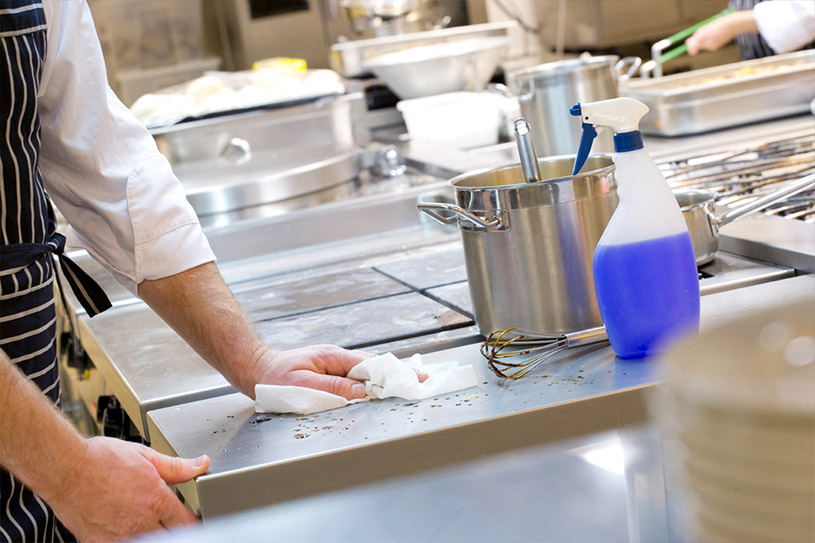Staying in control of food safety: lessons from China

Recent food safety scares among Western chains operating in China provide some salutary lessons for the foodservice industry. Concern about meat handling at a supplier in China has generated significant headlines. The likes of McDonald’s and Yum Brands, which owns the KFC and pizza hut chains, have sought to distance themselves from the supplier in question, Shanghai Husi Food.
A Reuters report (http://www.businessinsider.com/r-china-diners-test-mcdonalds-yum-says-food-scare-hurts-kfc-pizza-hut-sales-2014-31) noted that many of the consumers it had spoken to in China would ‘scale back their visits to McDonald’s, at least for now.’
High-profile stories of suppliers with substandard food practices may aren’t equally probable for foodservice businesses of all shapes and sizes. A diner being wary of a restaurant, as a result of a bad experience, is something any foodservice business should seek to avoid though. Negative perceptions can afflict operations large and small.
What large organisations like McDonald’s and Yum seek to do at moments like these is to assert control over the situation, to reassure consumers that any future risk has been mitigated. If a supplier is found to be unreliable and threatens to damage their brand, they look to move away from that supplier and apply new, better practices to restore high standards of safety and satisfaction. Lessons are said to have been learnt.
All foodservice businesses should be conscious of avoiding instances that could compromise food safety. Not all factors are within your control, though a good foodservice business will seek to see for itself the operations at key suppliers, for instance. Most importantly, it serves to highlight the extent to which foodservice businesses should have control over central aspects of food safety and hygiene. There’s little that can be done to distance your business from a lapse in food safety on your premises, such as poor kitchen cleanliness or lack of proper procedures for storing foodstuffs. Such compromises of food safety and hygiene speak for the restaurant itself in the eyes of the consumer – and are likely to deter customers in future.
While high-profile issues of suppliers risking food safety are not relevant to every foodservice business, they help illustrate the variety of risks that any restaurant should be aware of. In some cases, it is appropriate to take steps when factors (such as suppliers) are less within your control – as McDonald’s and Yum have done. Crucially, it is a reminder to get right the factors that are within your control. There is no way to escape the damage of food safety compromises taking place right inside your own kitchen, thanks to poor staff training or substandard provision of appropriate cleaning materials. Making sure these elements are well understood and managed is fundamental to your food safety and hygiene efforts.

